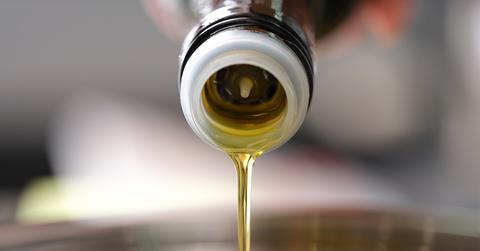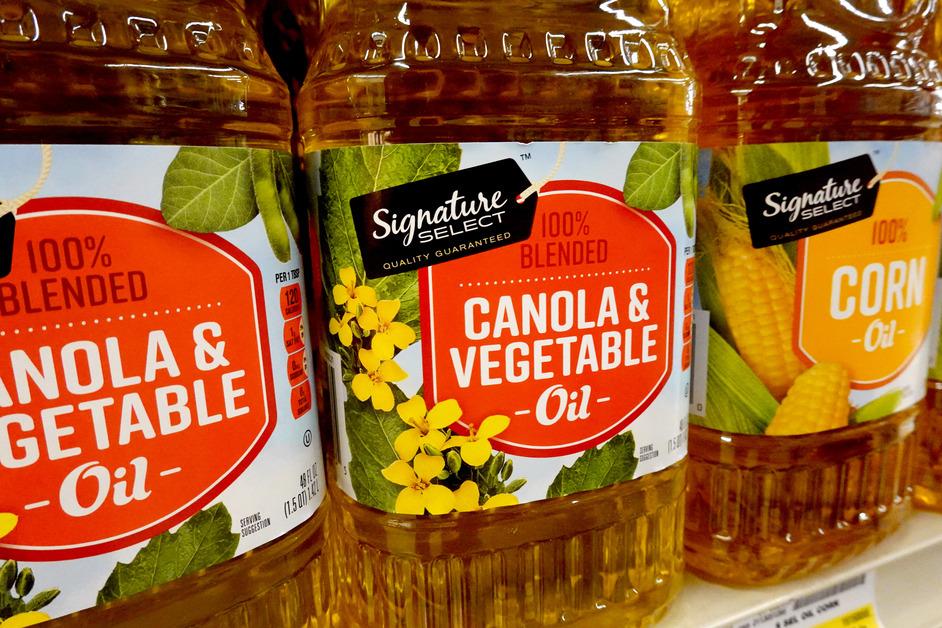Here's Why the Internet (and Politicians) Are Telling You Seed Oils Are Bad
Updated March 12 2025, 11:05 a.m. ET

Oils — specifically, seed oils — have been deemed the enemy of health in the media (and politics) as of late.
The absence of fiber and the high concentration of calories and fat within the cooking liquids have put oil on the hit list of things to classify as unhealthy, even if science does not back it up.
The notable discrepancy between the research and the public conversation poses the question, why are seed oils considered bad?
What are seed oils?
The term "seed oil" is used to describe any oil that is made from seeds. This includes canola, sunflower, cottonseed, safflower, and grape seeds, but it can also include common vegetable oils such as soy and corn oil, according to GoodRx Health.

Recently, seed oil scrutiny has plagued the internet, with fitness influencers even making a seed oil hate list, referring to them as “crimes against nature,” per Morning Brew.
Robert Kennedy Jr. has also said that Americans are being "unknowingly poisoned" by seed oils in fast food restaurants.
So, are seed oils actually bad?
Experts feel differently about how seed oils affect human health. Dr. Cate Shanahan MD, for example, states that high PUFA seed oils weaken the immune system. Others, however, feel that PUFAs are essential to a healthy diet.
According to WebMD, polyunsaturated fatty acids, (PUFAs) are a type of fat existing in vegetable oils, nuts, and seeds, containing omega-3 and omega-6 fats, which are essential to a healthy diet. There are unhealthy types of fat, but not in seed oils.
Seed oils contain unsaturated fat, a type of fat that is liquid and is considered good for lowering blood cholesterol levels and reducing the risk of heart problems and stroke. PUFAs are one type of unsaturated fat, the other being monounsaturated fat or MUFAs.

Saturated fats, on the other hand, are solid, and are bad for your health if consumed in high quantities regularly. Foods such as coconut oil, palm oil, meat, and cheese contain high levels of saturated fat and can increase the risk of heart problems and stroke, while also raising levels of bad cholesterol in the body.
Trans fat is considered the worst of the worst, most because of the fact that it is the most processed form of fat, made through a process of hydrogenation, where hydrogen gas is added to the vegetable oil to flavor and increase the shelf life of processed foods, all per WebMD.

The seed oil hate comes from larger distrust in the food industry.
It’s no news that social media is influential, meaning a personal health testimony circulating on Instagram or TikTok can spur people to reject medical advice and look to influencers for the real truth.
This is seen with many health trends, such as gut health. In a study done by the Health Law Institute at the University of Alberta, scientists found that gut health information on social media provides little information on the science of the microbiome. All the while, gut health lifestyle recommendations given on the internet are often taken as fact more than the evidence-based that exists.
The seed oil conversation is no different. It’s become a popular selling point for the diet industry and paleo brands that all share heightened suspicion of the food industry that they then relay to their customers, according to Morning Brew. Selling products that say “seed-oil free” and “paleo” appeal to a health-focused consumer, and also attracts those who already are skeptical of institutions.